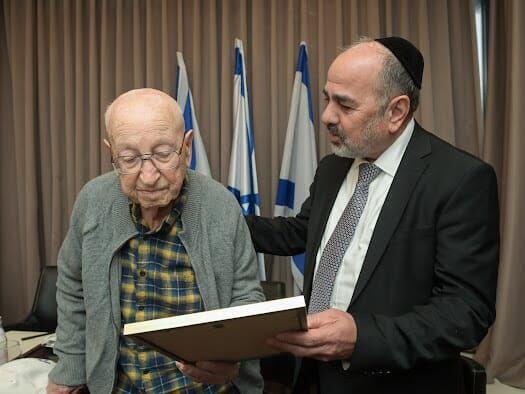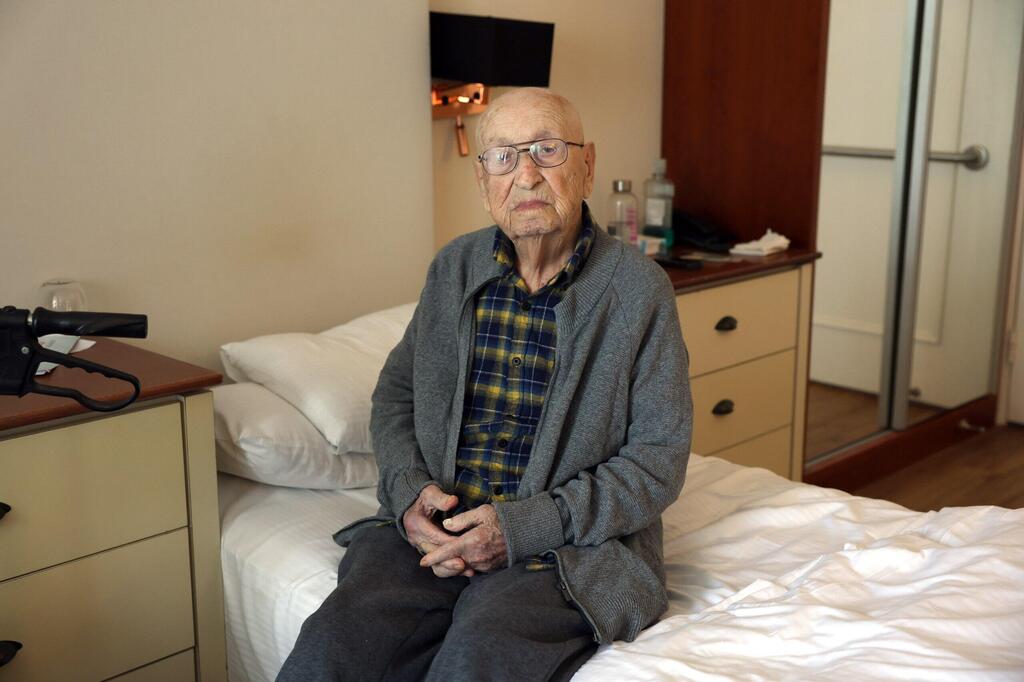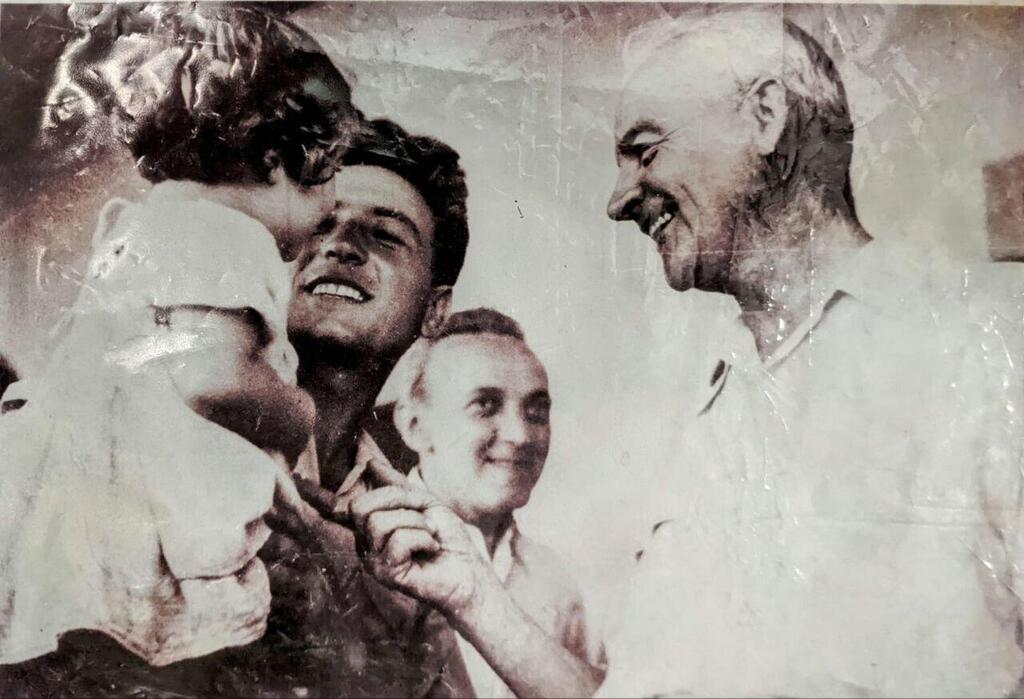Getting your Trinity Audio player ready...
Yehoshua Grossman is not the kind of person who would leave his home unless absolutely necessary. In fact, on October 7, when he was forced to stay indoors at his home in Kibbutz Nir Am due to fears of terrorist infiltration, he says he was not afraid of anything - except the concern that he might have to leave the kibbutz. Unfortunately, after 24 hours at home without electricity, he had to leave and relocate to a safer place.
Read more:
The kibbutz had been Grossman's whole life, and his eyes glow with excitement when he speaks about it. Reluctantly, along with his fellow kibbutzniks, he moved to the Herods Hotel in Tel Aviv - the first time he had left the kibbutz since its establishment. Even during the War of Independence, he recounts, after the first shell, the women and children were evacuated from the kibbutz for their safety, while Grossman stayed behind to fight and defend it.
"When they came to tell me to leave my home, it was terrible. How could I all of a sudden leave my home?! We have been in this hotel for three and a half months now, and every day feels like an eternity to me. I hope we can return home soon."
This week, Grossman received a certificate of appreciation from Welfare Minister Yaakov Margi on reaching 100 years old. "I was privileged to be among the first settlers and fulfilled my dream. What more could one ask for?" he said to the minister, despite his intense longing for home. "I am very moved, my friends and I made history."
Grossman was born and raised in Romania’s historical Bessarabia region and began his immigration process to Israel in 1940, but faced many difficulties along the way as borders closed due to World War II. Bravely, Grossman chose to continue his efforts to immigrate to Israel, a decision that saved his life, as everyone who returned to his city was killed in the Holocaust, including his entire family.
He boarded an immigrant ship to Israel, a journey that lasted four months. However, upon finally reaching the shores of Israel, the British seized the ship and imprisoned him and the other immigrants in detention camps in Acre and Atlit for about two years.
In 1943, Grossman was released from prison and decided to play a significant role in establishing many settlements in the Western Negev, including Kibbutz Nir Am and Hatzerim. Grossman and his friends wrote a significant chapter in the history of the State of Israel, participating in the major settlement operation in the Negev. He was one of the first settlers of Kibbutz Nir Am, where he lived until October 7.
Yehoshua speaks of his intense longing for the kibbutz, for the garden at his home, which he tended to daily, and of his hope to return to the kibbutz soon and help it flourish anew.
Alongside his contributions to the state, Grossman is a proud father, grandfather and great-grandfather and just recently had another great-granddaughter, bringing much light into the darkness.
"Today, when I look back on all that I have done in my life, it's unbelievable. I have fulfilled my dreams and achieved everything I wanted, and when I look at all that is here, I see that our efforts were not in vain," he said.
3 View gallery


Welfare Minister Yaakov Margi presents Grossman with a certificate of appreciation on reaching 100 years old
(Photo: GPO)
"The young generation fighting in Gaza now draws its strength from the founding generation, Yehoshua Grossman's generation," Minister Margi said as he presented Grossman with the certificate. "It is a great honor to stand here today and witness the chain of generations before my eyes."
Yariv Man, deputy director-general and head of the Senior Citizens' Administration at the Welfare Ministry, said, "The senior citizens in the Western Negev communities are an example today of resilience. The public looks at them with pride and sees the strength and hope they give to the younger generations, strengthening all of Israeli society."




